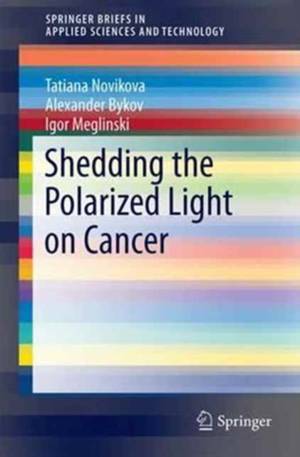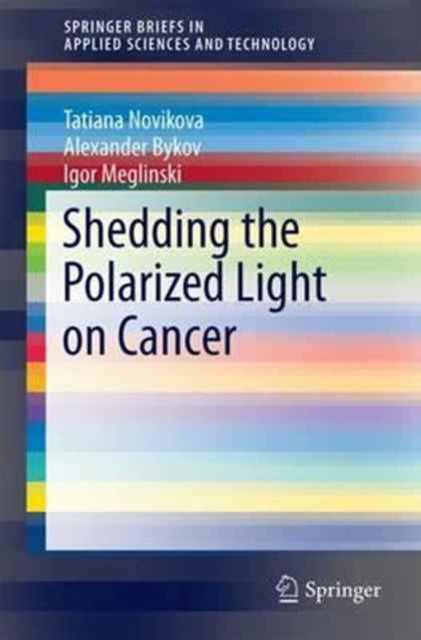
- Retrait gratuit dans votre magasin Club
- 7.000.000 titres dans notre catalogue
- Payer en toute sécurité
- Toujours un magasin près de chez vous
- Retrait gratuit dans votre magasin Club
- 7.000.0000 titres dans notre catalogue
- Payer en toute sécurité
- Toujours un magasin près de chez vous
Shedding the Polarized Light on Biological Tissues
Igor Meglinski, Liliya Trifonyuk, Victor Bachinsky, Oleh Vanchulyak, Boris Bodnar, Maxim Sidor, Olexander Dubolazov, Alexander Ushenko, Yurii Ushenko, Irina V Soltys, Alexander Bykov, Benjamin Hogan, Tatiana NovikovaDescription
This book explores the early-stage detection of cancer using polarized light. It discusses the diverse properties of the light (temporal and spatial coherence, polarization, fluorescence, etc.) that can be used non-invasively as an optical technique for recognizing precancerous lesions, which could become a reliable and accurate method for cancer screening. The search for the effective means for cancer screening is of particular interest to scientific and medical communities, because cancer takes its toll around the globe with no respect for age or gender. Early detection of the disease is a key factor in increasing the survival rate and patients' quality of life.
Spécifications
Parties prenantes
- Auteur(s) :
- Editeur:
Contenu
- Nombre de pages :
- 98
- Langue:
- Anglais
- Collection :
Caractéristiques
- EAN:
- 9789811040467
- Date de parution :
- 11-04-21
- Format:
- Livre broché
- Format numérique:
- Trade paperback (VS)
- Dimensions :
- 156 mm x 234 mm
- Poids :
- 176 g

Les avis
Nous publions uniquement les avis qui respectent les conditions requises. Consultez nos conditions pour les avis.






